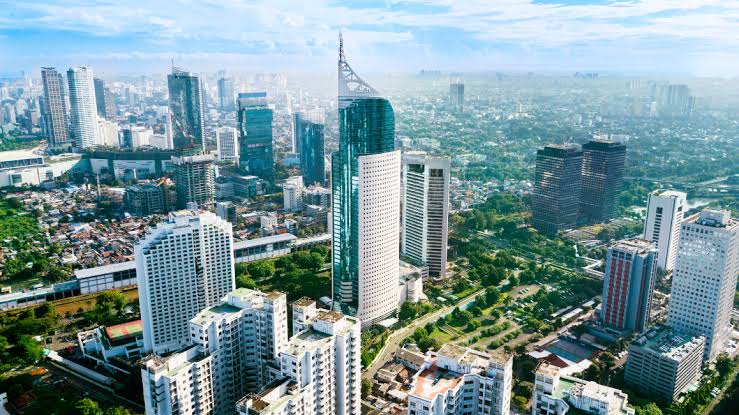Indonesia’s Economic Brilliance: Navigating Prosperity in 2024

The World Bank’s semi-annual Indonesia Economic Prospects report highlights the nation’s commendable economic resilience, underscored by a declining inflation trajectory and a steadfastly stable currency. According to the report, Indonesia’s economic landscape remains robust, even as it anticipates a marginal easing in GDP growth from the current 5% to an average of 4.9% over the period of 2024-2026.
This adjustment is attributed to the expected waning of the commodity boom. Nevertheless, the overall economic outlook, characterized by prudent fiscal measures and monetary stability, reflects Indonesia’s ability to navigate challenges and sustain growth, garnering confidence in its economic prospects on the global stage.
In the fiscal forecast for 2024, private consumption emerges as the pivotal force propelling economic growth. The anticipation rests on the premise that not only will private consumption exhibit vigor but also that business investment and public spending will witness an upswing.
This optimistic trajectory is attributed to ongoing reforms and the initiation of new government projects, which collectively contribute to a conducive environment for heightened business activity and public expenditure.
As a consequence, these factors align to foster a robust economic landscape, positioning private consumption as a principal catalyst, while concurrently fostering increased business investments and public spending, thereby fortifying the overall growth trajectory for the year ahead.
Anticipated for the year 2024 is a moderation in inflation to 3.2%, down from the current yearly average of 3.7%, aligning seamlessly with the target band set by Bank Indonesia. This decline is ascribed to the easing of commodity prices and a recalibration to standard rates of growth in domestic demand following the post-pandemic resurgence.
However, a nuanced dynamic is introduced by the potential impact of the El-Niño weather pattern, exerting upward pressure on food prices. The climatic phenomenon poses a risk to food production in specific regions, contributing to a potential spike in prices.
Despite this localized challenge, the overall projection underscores a measured and controlled inflationary environment, reflecting a harmonious balance between economic factors and external variables shaping Indonesia’s inflation outlook for the upcoming year.
The outlook for Indonesia’s trade sector in the coming period reflects a nuanced scenario. Services exports are poised to gain momentum, fueled by the sustained recovery in tourism. This positive trajectory is, however, juxtaposed against potential challenges in the export of goods. The latter faces headwinds due to lower commodity prices and a broader context of weakened global growth.
Concurrently, there is a forecasted increase in government revenues as a percentage of GDP, driven by the tangible effects of implemented tax reforms. This financial boost is expected to be complemented by a gradual return of government spending to pre-pandemic levels. The interplay of these factors delineates a multifaceted economic landscape, where the service sector thrives on tourism resurgence, while careful fiscal management and reforms shape the trajectory of both government revenue and spending.
While Indonesia’s current economic scale surpasses previous benchmarks, it remains on a trajectory of incomplete recovery from the impacts of the pandemic, a phenomenon not unique to the nation but prevalent globally. The enduring repercussions encompass discernible scarring effects on labor markets and productivity growth, shaping the lingering challenges faced by the economy. The overarching economic outlook is not without vulnerabilities, predominantly stemming from external sources.
Prolonged higher interest rates in major economies possess the potential to exert adverse effects on global demand, elevate borrowing costs, and impede accessibility to international markets. Furthermore, the specter of global geopolitical uncertainty looms as a potential disruptor to value chains, adding an additional layer of complexity to Indonesia’s economic landscape. Thus, while the nation has made strides in economic resurgence, it remains intricately entwined with the uncertainties of the broader global economic milieu.
The transition of Indonesia towards a low-carbon and climate-resilient economy holds the potential in a transformative phase marked by sustainable economic growth and concurrent poverty reduction.
This prospective paradigm shift leverages the progress already achieved in confronting the challenges posed by climate change. Integral to this transition are strategic fiscal, financial, and trade policies. Fiscal policies, for instance, can play a pivotal role in both bolstering revenues and discouraging reliance on fossil fuels.
By aligning economic strategies with climate-conscious initiatives, Indonesia has the opportunity not only to mitigate environmental impacts but also to cultivate a resilient and prosperous economic future, thereby addressing the dual imperatives of sustainability and poverty reduction.


